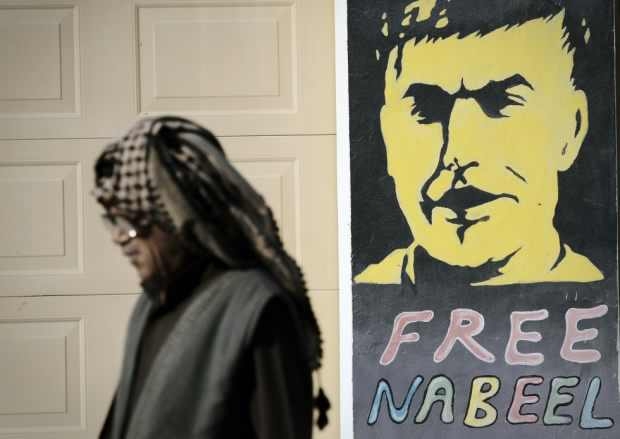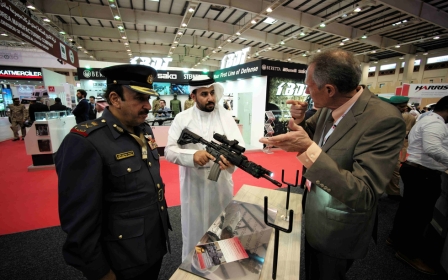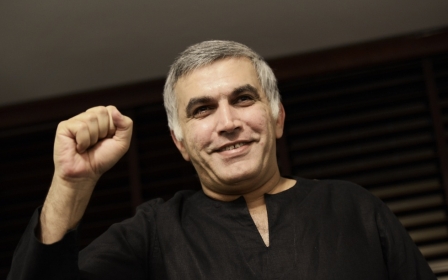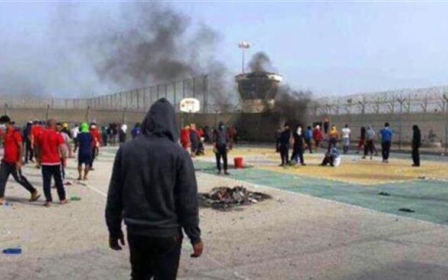Bahrain's jailing of relatives of rights activist condemned by UK MPs

Fifteen organisations and 27 MPs have urged the British government to demand the release of three Bahrainis who they say have been detained as part of a “pattern of abuse and harassment against human rights defenders and their families” in the island state.
Campaigners say Sayed Nazar Alwadaei, Hajar Mansoor Hasan and Mahmood Marzooq Mansoor have been imprisoned because they are relatives of Sayed Ahmed Alwadaei, a human rights activist and the director of advocacy for the London-based Bahrain Institute for Rights and Democracy (BIRD).
In a Thursday letter to Foreign Secretary Boris Johnson, MPs including Caroline Lucas and Andy Slaughter said family members had been "ill-treated, tortured and interrogated" before being served with terrorism charges based on "coerced confessions".
It described the case against the family as "entirely political" and "designed to exert pressure on Mr Alwadaei," who was attending the UN Human Rights Council in Geneva when the three were arrested in March. The activist and his wife, who are based in London, have been targeted for criticising the Bahraini governing in the past.
Torture against rights activists in Bahrain has been well documented, including in a recent Amnesty International report that said at least 169 activists had been tortured, imprisoned, threatened or banned from travel by the state between June 2016 and 2017.
Sima Watling, a campaigner on Bahrain for the group, said the current situation was "very worrying" and said reports that the trio had been tortured in jail were reliable.
"We know these interrogations took place and they did not take place in the way they are supposed to," she told Middle East Eye. "It seems to have been a targeting of Alwadaei because he is so outspoken."
The Bahraini government could not immediately be reached for comment. In response to past media attention over the plight of the family, the Bahraini Embassy in London said it was due to Alwadaei’s “history of being involved in and supporting terrorist acts”.
Hajar Mansoor Hasan, the mother-in-law of Sayed Ahmed Alwadaei, is reportedly on hunger strike with five other female prisoners and has vowed to refuse food until prison authorities consider inmates “humans and not animals”.
The family’s detention is one of several violations recently reported by human rights campaigners in Bahrain.
This week, authorities transferred the president of the Bahrain Center for Human Rights, Nabeel Rajab, from a clinic to Jau Prison, an institution notorious for poor treatment, despite serious health risks.
Rajab has been in prison for nine months as part of a two year sentence for spreading false news, and faces up to 15 years in prison for charges relating to tweets in which he criticised the bombing of Yemen and exposed torture in Jau Prison - the jail he is now imprisoned in again.
Family members told MEE that officers had subjected Rajab to humiliating and degrading treatment on his arrival, forcibly shaving his head, confiscating his books and clothes, and repeating violent searches in the middle of the night.
They said he was being held in a cell with men accused of Islamic State group membership and described the degrading treatment as an attempt to "break" the human rights activist.
It was also revealed on Wednesday that Sayed Alawi, who authorities detained without charge in September 2016, is to become the first civilian to be tried in a military court following a 2017 constitutional amendment.
Human Rights Watch deputy Middle East director Joe Stork has said Bahrain has violated the engineer's "fundamental human rights in multiple ways," including "forcibly disappearing him, detaining him without charge for a year, and making him face military judges".
Bahraini military courts last prosecuted civilians in military courts in 2011, following anti-government protests.
The UK maintains an amicable relationship with Bahrain. British government contractors in 2015 and 2016 spent more than 650 days training Bahraini prison guards, and since 2000 the UK has sold at least $85m of arms to Bahrain's government.
Watling at Amnesty urged the British government to use its "privileged position" with the Bahraini government to push for action on human rights violations.
"These cases have indicated that the situation is dire and getting worse," she said. "It is going back to levels in some cases that we haven't seen since the uprising in 2011."
The trial of the family of Sayed Ahmed Alwadaei is scheduled to take place on 30 October.
New MEE newsletter: Jerusalem Dispatch
Sign up to get the latest insights and analysis on Israel-Palestine, alongside Turkey Unpacked and other MEE newsletters
Middle East Eye delivers independent and unrivalled coverage and analysis of the Middle East, North Africa and beyond. To learn more about republishing this content and the associated fees, please fill out this form. More about MEE can be found here.




